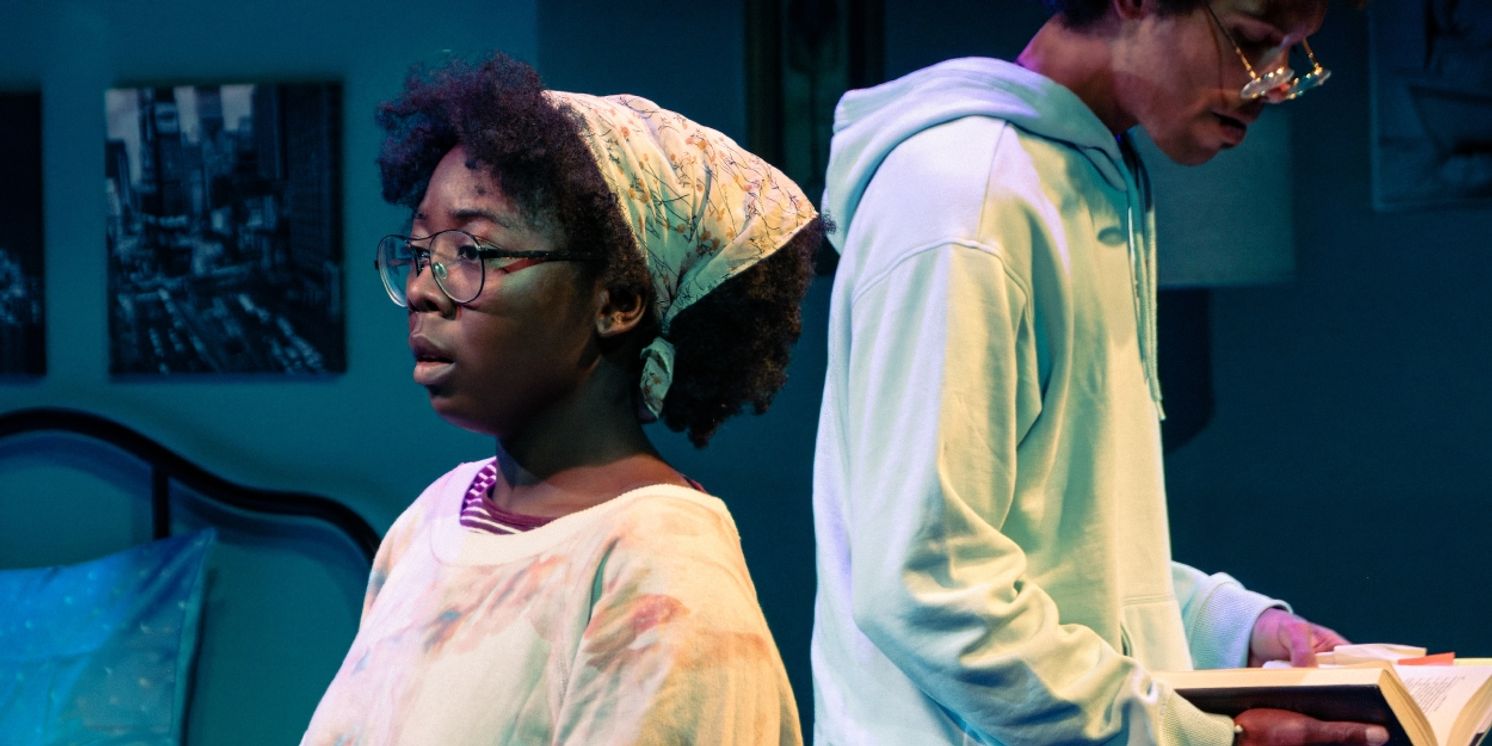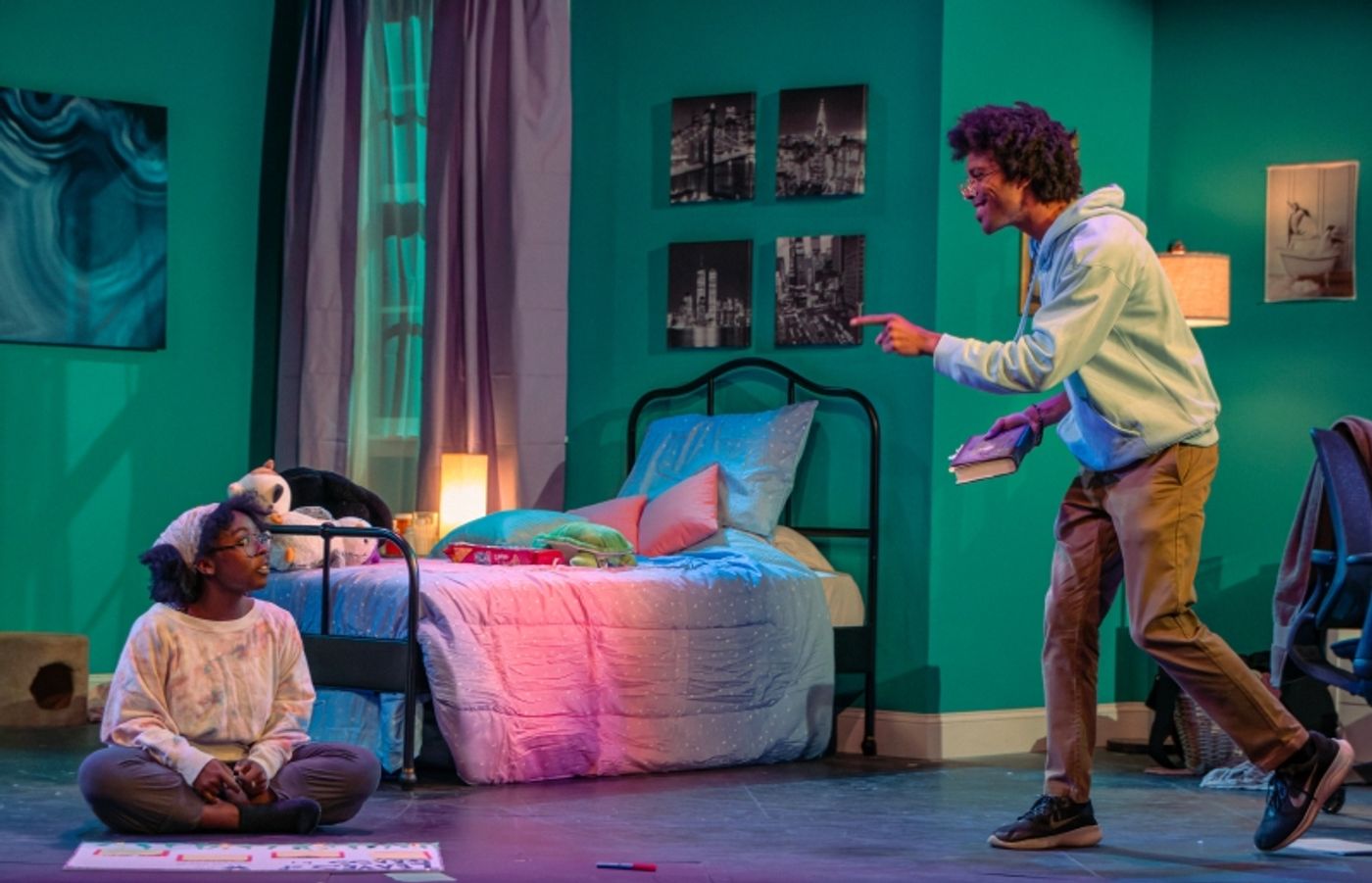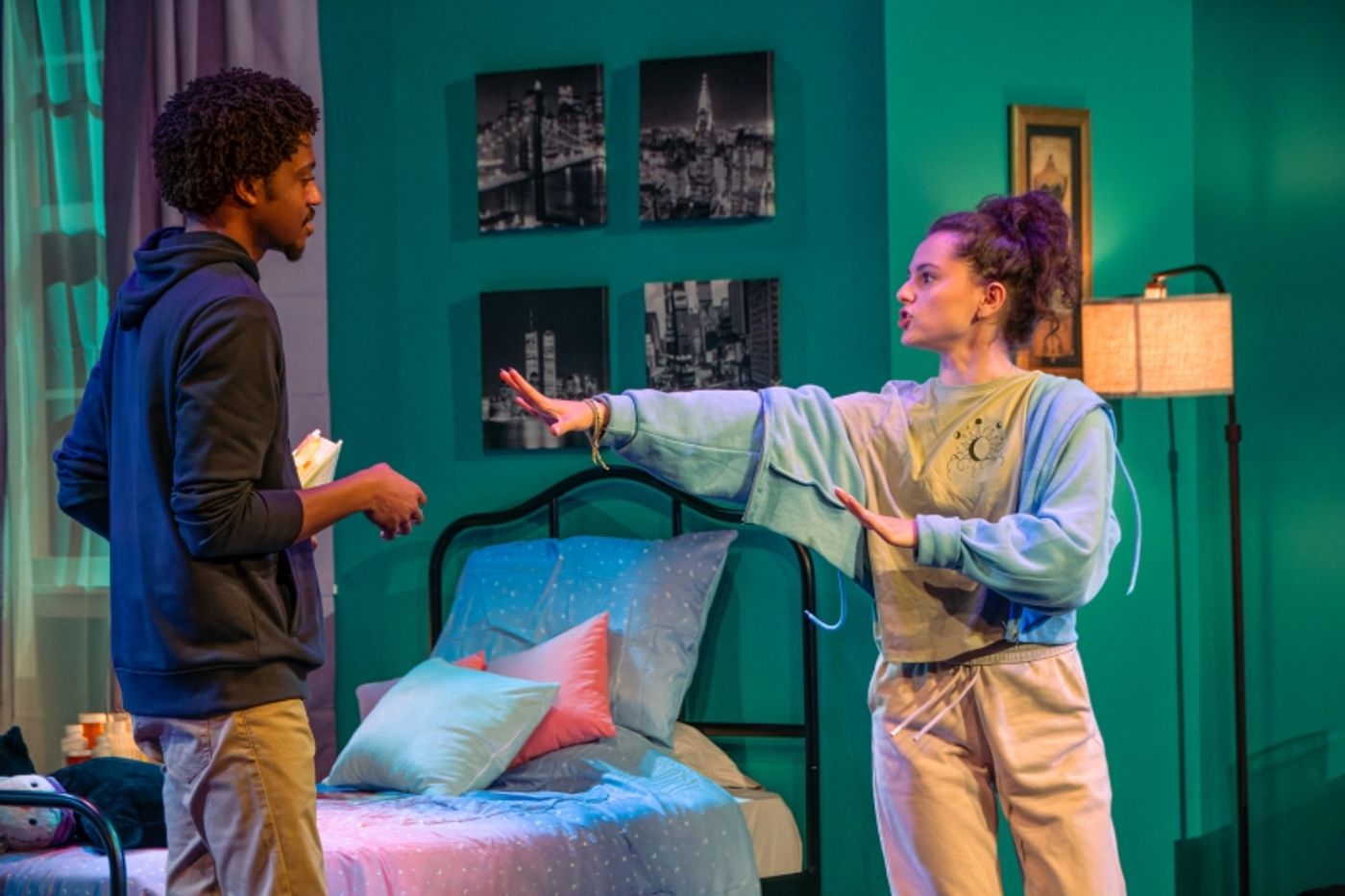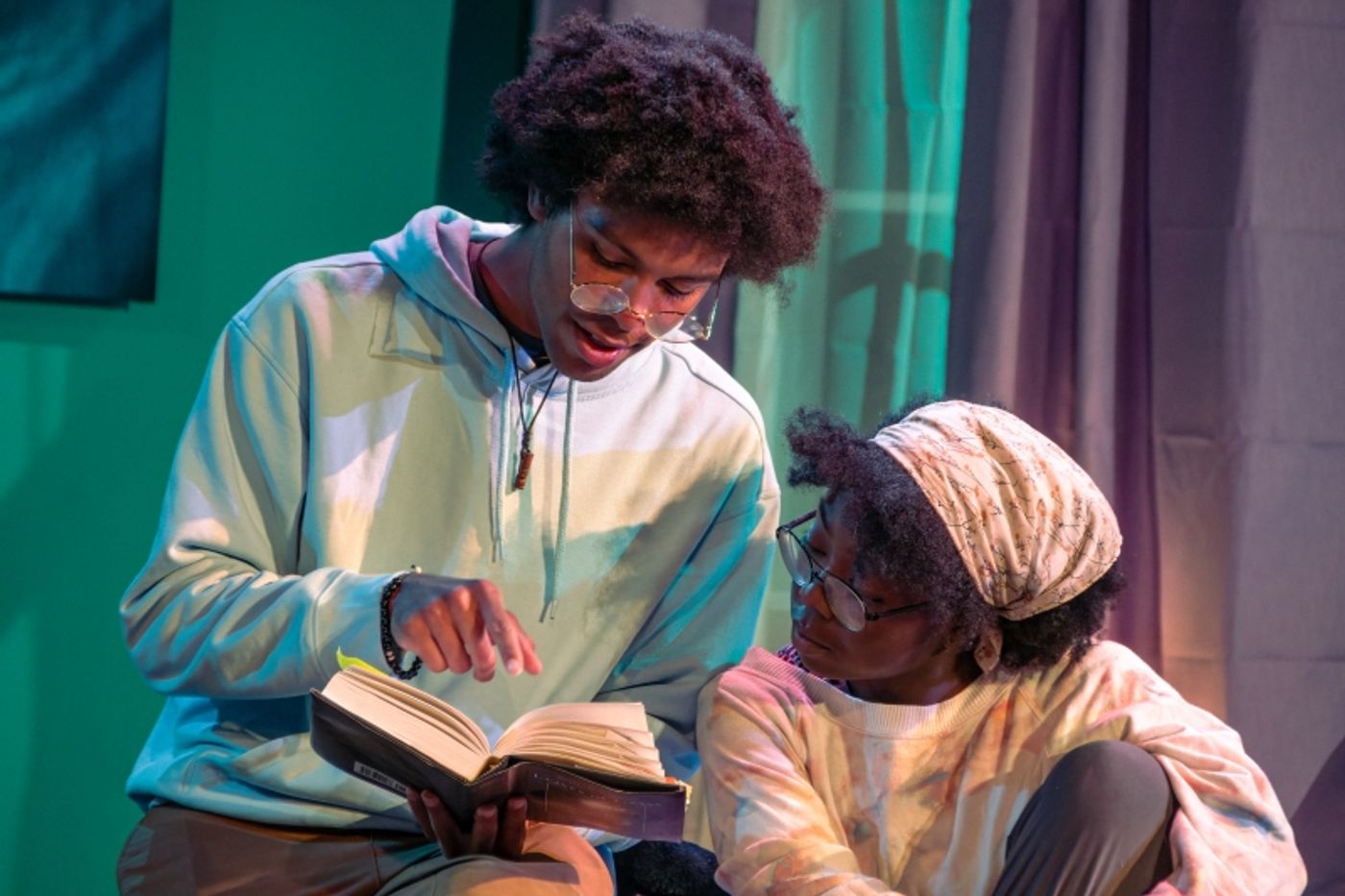Review: I AND YOU at Theatre Charlotte
I AND YOU Sings Songs of Myselves

Stevie Wonder made the point so memorably over 50 years ago when he dropped his Talking Book album: “You and I” sounds so much more melodious and natural than if you reverse those pronouns. As Laura Gunderson’s unique 2014 dramedy reminds us, now wrapping up Theatre Charlotte's 95th season, I AND YOU sounds and feels rather awkward – even if it’s grammatically correct.
Predictably, the play is written for two high-school-aged people going through an awkward meeting, and director Rasheeda Moore makes the two-hander a little more fit for community theatre programming by rotating two different casts during the production’s two-weekend run. Pronouns figure prominently in the plot from the beginning, for when Anthony enters Caroline’s bedroom and meets her – without prior notice – for the first time, he’s carrying a really lame handmade poster and a fairly shabby old book, overflowing with scraps of sticky notes and bookmarks.

He’s a young man on an urgent mission, so desperate in his pleading that he almost sounds commanding. You and I, he is telling her, need to collaborate on a project for our American Lit class where we show how the meaning of I and You keeps changing during the course of Walt Whitman’s “Song of Myself.” That’s a rather big ask of Caroline, a rather ornery young woman suffering from a liver disease that keeps her out of school most of the time. She actually hates poetry, let alone Walt Whitman.
Caroline’s objections to poetry and how it’s taught in school are rather intelligent, and Anthony’s advocacy of Whitman is passionate and rather erudite for a teen. If they can get together, the outcome could be provocative. We know that Caroline isn’t really going to throw Anthony out, and we know that Anthony isn’t going to storm off, never to be seen again, so it’s gratifying that Gunderson only briefly feints in those directions. Once these formalities are dispensed with, our main interest jibes with that of the people before us onstage: getting acquainted and finding out why they’re worth our time.
Gunderson keeps it personal and unpredictable, with mercifully few ensuing chances that Anthony and Caroline will break apart before they get to know each other. They do get to know each other over two acts, with multiple scenes before and after intermission. Through various disagreements, crises, musical jams, and accords – and of course, through the lyricism and the merging, pantheistic spirit of Whitman.

Along the way, Anthony’s classroom assignment becomes a subtle template. For while he and Caroline are wrestling with the multitudes that Whitman packs into his pronouns, we find ourselves on the lookout for how the I and You speaking to each other onstage are changing before our eyes – in their views of themselves, each other, and what they can do and be together. Even so, the outcome was beyond my wildest imagination, though Gunderson had skillfully dropped a hint or two.
Moore is similarly thoughtful in how she handles her two casts, the Walt Cast and the Whitman Cast. They are listed in that order on our playbills, but it was the Whitman Cast, Njoki Tiagha and John Emilio Felipe, who actually premiered this production last Friday at the Queens Road barn. That’s the cast I saw at the Sunday matinee, so the Walt Cast (Dorian Herring and Isabella Frommelt) will be performing more times during the second week of the run as they continue to alternate, evening the score for the last time at this coming Sunday’s matinee.
You’ll also notice – and perhaps appreciate – that the players in each cast are listed in the order of Whitman pronouns they will explore. Chris Timmons’ set design is richly hued, a nicely coordinated mix of turquoise, blue, and purple, always in tune with Timmons’ lighting. The décor is more dreamy than girly, particularly when Caroline turns on the little light show she has installed. Bedridden though she often is, she is outfitted with a laptop, a cellphone that serves as a gateway to her someday becoming a photographer, a smoke detector with a dead battery, and a turtle pillow that she hugs fiercely and talks to.
Anthony, we learn, is a varsity basketball player fresh from a game where he had a traumatic experience. Not a total loser with women, he comes bearing waffle fries.

Although Gunderson specifies the race of each character, Moore demonstrates that she finds such prescriptions disposable. Her results with the Whitman Cast are quite admirable, though she needs to tell both players to turn up the volume if they’re to conquer the acoustic problems of the renovated Old Barn. Even the most veteran actors who have appeared there since the grand reopening have sometimes struggled to be heard.
Tiagha is near-perfect as Caroline, particularly in mixing the teen’s intelligence with her eccentricities. She only needs to let us know a wee bit more clearly that Anthony is getting over on her and that she is falling for him (and Walt’s poetry). The opposite problem afflicts Felipe, who is perennially a couple of notches too shy and worshipful toward Caroline – he’s a popular jock at school! – without gaining sufficiently in confidence as he begins to make headway. While I question those choices, I must applaud how intensely Felipe inhabits every moment. Furthermore, the rapport that Tiagha and Felipe have sown is superb at every turn.
Gunderson strikes the right chord in developing her protagonists through the music they love. For a boomer like me – who owns Jerry Lee Lewis’s complete Sun Sessions as well as John Coltrane’s complete Atlantic, Impulse, and Prestige recordings – her choices couldn’t be more perfect. Or authentic. YMMV, y’all.
Photos by Kyle J. Britt
Reader Reviews

Videos

